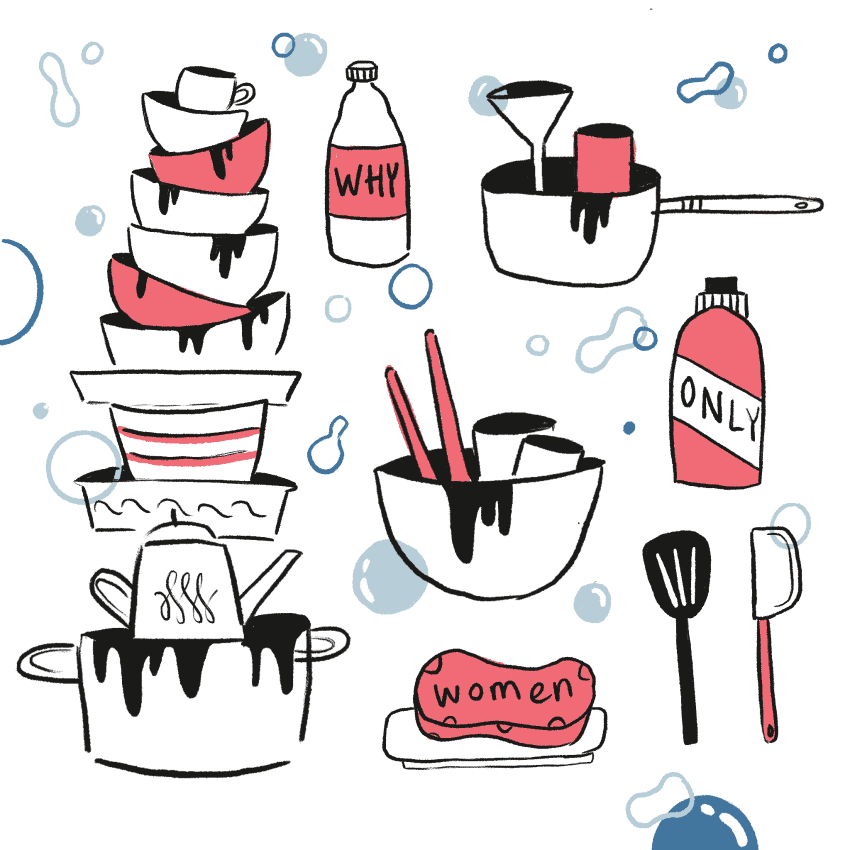
I was nine years old when I moved to Canada. Growing up, I experienced two, often at odds, cultures — my Filipino culture and the Canadian lifestyle that I was beginning to get more accustomed to.
My newfound affair with Western culture allowed me to explore my individuality. But over the years, I realized that some ideals from my Filipino culture, which my home life upheld, ticked me off. Despite living abroad for almost 13 years, I cannot seem to completely remove them from my life.
Back in the Philippines, I had a love-hate relationship with my extended family whenever they came to visit our home. I loved that our home was filled with my favourite people, sharing the best Filipino dishes.
What I hated? The amount of things I had to clean after. As the eldest child in our family, it was always assumed that I was responsible for the responsibilities that my parents could not fulfill.
At first, I did not see a problem with that, until my later years when completing a simple chore transformed into something much bigger.
When I arrived in Canada, I was still urged to clean after every meal, even at other people’s places when we would visit them. I began to feel serious resentment after noticing other male children my age — sometimes even older — were not being asked to do the same.
The concept of “respect” and “getting along with others” were the go-to explanations whenever I showed signs of annoyance. It wasn’t until I explicitly said that I was over it that people began saying things about my defiance. It was then that I realized I was deep into a set of societal roles and expectations that still existed thousands of miles away.
Today, I’m proud to say I have grown to be an assertive woman who goes after what I want. I am no longer afraid to speak my mind about issues I care about.
While being an assertive woman may seem to be more normalized here in North America, it is considered a privilege by some women in my home country. Others may even refer to it as outright rebellion that disregards our Filipino values and traditions.
As I continue my pursuit of post-secondary education, the idea of parenthood is beginning to enter conversations among my peers and older friends.
There was a time when someone outright asked if I saw myself having a successful career and still having enough time to look after my future children and husband.
I have learned in these instances that your best bet is to simply laugh it off, because people who can ask such questions in front of your face will likely not find your answers satisfactory.
The double standards that exist between males and females from my background come up once in a while, causing unwanted feelings. When you are a woman who strives for independence, and you are greeted with a cold shoulder by those you consider to be your people because of it, it is easy to become disheartened.
Wherever I come across fellow Filipinos who still practice and embrace these kinds of attitudes and behaviours, I simply freeze and the rest of the interaction feels like I am walking on eggshells. I do not want to be viewed as disrespectful, but when every other comment is backhanded and goes against who I am, it is easy to become visibly frustrated and I end up with some biting comment to retaliate.
It may be hard for some to fathom how all of these issues can be traced back to simply doing chores in the kitchen, but it is true for me.
And while I am still learning and unlearning how to navigate and appreciate this new world that I am building on my own terms, it is very important for me to look back and share stories like these, for it may land on the eyes and ears of a woman who feels trapped by ideas made by someone else for her.
I’m living proof that you don’t have to.
—
Kristine Jones A. Del Socorro | Culture Editor
Graphic: Anh Phan | Design Editor
Leave a Reply